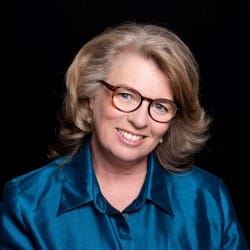
 The Council of the Royal Society of NSW warmly congratulates one of its Fellows, ARC Laureate Professor Alison Bashford FRSN FAHA FRHistS of UNSW (Sydney), on being named as a 2021 Dan David Prize Laureate. Professor Bashford is the Director of the Laureate Centre for History & Population at UNSW Arts, Design & Architecture, and was the 2020 winner of the Royal Society of NSW History and Philosophy of Science Prize.
The Council of the Royal Society of NSW warmly congratulates one of its Fellows, ARC Laureate Professor Alison Bashford FRSN FAHA FRHistS of UNSW (Sydney), on being named as a 2021 Dan David Prize Laureate. Professor Bashford is the Director of the Laureate Centre for History & Population at UNSW Arts, Design & Architecture, and was the 2020 winner of the Royal Society of NSW History and Philosophy of Science Prize.
The Dan David Prize is a prestigious international prize, which annually makes three awards of US$1 million each for achievements having an outstanding scientific, technological, cultural or social impact on our world. Each year fields are chosen within the three Time Dimensions — Past, Present and Future. The total purse of $US3 million makes this prestigious prize also one of the highest valued awards internationally.
Professor Bashford is one of three international scholars who have received Laureates in the category Past: History of Health and Medicine.—with the other two being Professor Katharine Park (Harvard University) and Professor Keith Wailoo (Princeton University).
Dr Anthony Fauci, Director of the US National Institute of Allergy and Infectious Diseases (NIAID) was awarded the Present: Public Health prize, while pioneers of an anti-cancer immunotherapy, Professor Zelig Eshhar (Weizmann Institute of Science and the Tel Aviv Sourasky Medical Center), Professor Carl June (University of Pennsylvania) and Dr Steven Rosenberg (National Cancer Institute in Bethesda, Maryland) were named as Laureates in the Future: Molecular Medicine category.
The citation for Professor Bashford’s Laureate notes that she has contributed immensely to the history of medicine and science by connecting it with global history and environmental history into new assessments of the modern world, from the 18th to the 20th centuries. Laureate Professor of History at the University of New South Wales, Sydney, Australia and Director of the Laureate Centre for History & Population, and Honorary Fellow, Jesus College, Cambridge, Bashford’s work is unusually expansive across geographies, topics, and periods.
She has led global discussion about the history of health and medicine in four major areas: quarantine and medico-legal border control; population and eugenics; the links between colonial and world health; and gender and health as a key driver of modern world history. In all these areas, Bashford’s books, articles and public discussion offer large-scale and integrated analyses of how the twenty first century world came to be.
Her longstanding historical work on quarantine and infectious disease has been a major resource in the context of the coronavirus pandemic. Bashford brings together scholars from across the world, and across many disciplines, to consider how the past and present fold together. When biosecurity threats of SARS, anthrax, and avian influenza suddenly amplified political insecurity in the early 2000s, she convened leading thinkers quickly, producing a trio of books that have deepened our understanding of that complex global moment, unexpectedly renewed with the emergence of Covid-19.
Throughout her work on eugenics, Bashford has eschewed an obvious exposé history. She has been far more driven to understand how and why it flourished amongst progressivists, modernists, and reformers, and how, counter-intuitively, some anti-racists and anti-colonials also pursued eugenics. Perhaps her most original contribution has been to analyze eugenics within twentieth-century conceptions of “freedom” and “duty,” along with coercion and force. Her work has linked the practice of eugenics to the emergence of a global liberal and neo-liberal order, as much as to the history of fascism to which it is typically connected.